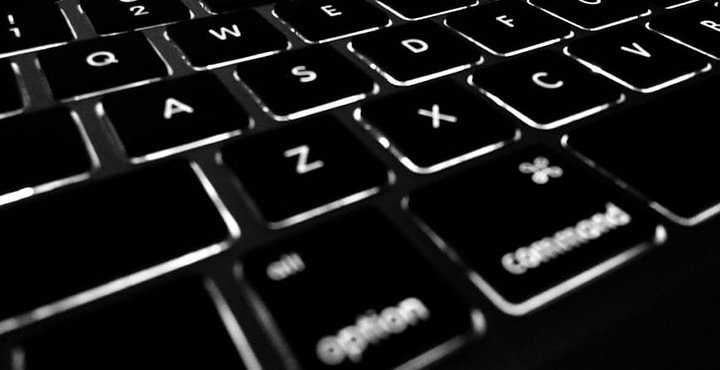Writing a good cover letter will help you clinch an interview
After weeks of searching, you've finally found it: a job posting that suits your skills and interests perfectly. You know you're right for the position, but you're worried. What if you submit your resume and don't get called for an interview?
Clinching an interview is vital when it comes to finding employment, so why take a risk? Writing a cover letter that stands out could be all it takes to secure an interview.
The purpose of a writing a cover letter
The purpose of a cover letter is to provide a prospective employer with information on your skills, interests, and experience. A well thought out cover letter will also show an employer that you're organized, professional, and, above all, highly interested in the position. A poorly constructed cover letter can show an employer that you're disorganized, disinterested, or simply desperate for employment.
Consider your cover letter a platform that allows you the opportunity to market yourself to the company. Re-read your cover letter or review cover letter examples to get an idea of what you should include and how you should format a cover letter.
What to include when writing a cover letter
An introduction
A cover letter, like all formal letters, begins with an introduction. In this section, introduce yourself and specify the position to which you are applying. It is also wise to point out that you are open to other similar positions in the event that the one you are interested in is not currently available. This indicates to the employer that you are flexible, adaptable, and willing to learn about the company.
You should also point out how you learned about the job offer: was it by way of a website posting, a family member affiliated with the company, a friend, or a newspaper ad?
In some cases, you may have already spoken to the person to whom the letter is addressed to ask some general questions about the position and the company. In this case, start off by thanking the person for his or her time with a reference to that conversation; the letter is then a follow-up to that brief discussion:
Thank you for taking the time to speak with me this morning regarding the technical support position currently being offered by ABC Company.
If you spoke to someone at that office and he or she suggested you address your cover letter to someone else, you could write the following:
Thank you for taking the time to review my attached resume. In speaking with Mr. John Smart from ABC Company earlier this week, I understand that you are looking for someone who has experience in technical support.
Body
In a new paragraph, the body of the letter will follow the introduction. Here, we recommend briefly describing how your qualifications will suit the employer, keeping in mind that you are pointing out the highlights of your resume only, not reiterating them in their entirety. You can talk about your education, work experience, leadership skills, communication skills, or organizational abilities as they pertain to the position. Go into some detail, but keep it short.
Remember to use key words or phrases that are used in the actual job offer, if they apply to you. For example, if the job posting states that the company is looking for an applicant who has communication skills and works well with the public, highlight these traits in your description.
Keep in mind that many skills are transferable. If you are applying to a field in which you have no direct experience, remember that, in some cases, you can expand upon your existing skills, such as working with people or using your organizational talents. If the company is looking for a specific quality or certification but you are genuinely interested in the job, mention this but highlight the skills you do possess. For example, you could write the following:
Although I do not have a degree in environmental engineering, my work experience in the field of industrial wastewater treatment for Acme Inc. during the past five years has given me a solid base of knowledge in this profession.
When writing the body of your cover letter, remember to always emphasize your strongest attributes. Even if you think you may not have what the employer is specifically looking for, he or she may be impressed enough to grant you an interview based on your cover letter and experience.
Address the topic of availability
If you have prior commitments (such as finishing up a previous job or attending school), state this in your cover letter:
I can start this position as of January 1, at the end of my fourth semester.
or
I can start within a few days' notice, or more immediately should the need arise.
If the position is of a temporary nature and you are, for example, going back to school to continue a program, make sure you state this as well for clarification of your availability.
Closing
In the closing of your cover letter, thank the employer for taking the time to review your resume. Include a sentence that addresses your wish for a response in the near future, and give the employer the opportunity to contact you at his or her earliest convenience:
Thank you for taking the time to review my resume. I look forward to an opportunity to speak with you sometime in the near future regarding this position. Please feel free to contact me at the number(s) below at your earliest convenience.
After your name and signature, include one or two phone numbers (such as your home and/or cell phone) where you can be reached. Although you have already incorporated this in the heading of your resume, it is always a good idea to add this to your cover letter in case the resume or application is misplaced or they get separated from one another.
Make a first impression in person
Finally, if you have the opportunity to drop off the resume and cover letter in person, do so. Contact the company and ask if the person to whom your letter is addressed would be available for a few minutes to give you the opportunity to introduce yourself with respect to the position being offered.
This is ideal, since it helps the employer "put a face to the name," especially if there are numerous applicants for that job. The fact that you made the effort to meet with the employer demonstrates your determination, and he or she will remember you more clearly because of this.
However, use your discretion here. If the employer does not have the time to see you, you can either bring the resume package to a receptionist or assistant, which may still get back to the employer (i.e., "Mike Scott dropped off his resume today, and he seemed quite nice"), or simply mail it in. Do not force the issue by just showing up and asking for that person once you have been told that he or she is not available. This may be seen as being too aggressive and could land your application in a circular file (commonly known as the trash can).
Review your cover letter
As is the case with most written documents, if your cover letter is riddled with errors, you may be perceived as unprofessional to your potential employer. To ensure your resume and cover letter are free from errors and best represent your abilities and talents, send them to our resume editors for a thorough review.
Image source: Heng Films/Stocksnap.io









